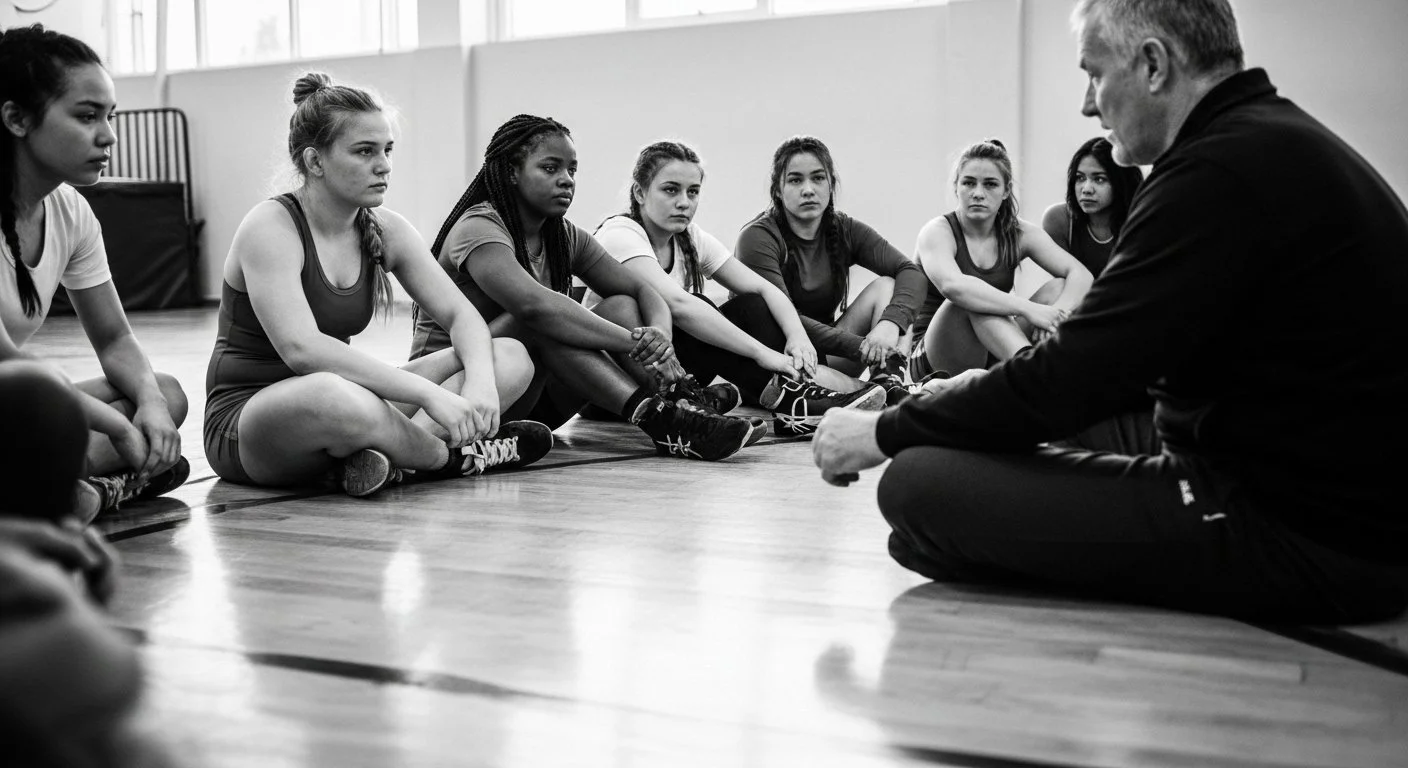Becoming the Architects of Your Athlete’s Success Story
Coaches hold a unique and profound role: they are the creators of perspective and the architects of meaning for their athletes.
In his famous book, The Road Less Traveled, author and American Psychiatrist, M. Scott Peck, writes:
“Our view of reality is like a map with which to negotiate the terrain of life. If the map is true and accurate, we will generally know where we are, and if we have decided where we want to go, we will generally know how to get there. If the map is false and inaccurate, we generally will be lost.”
Peck goes on to explain that we are not born with these reality maps; we have to make them. But because making these maps requires substantial effort, many people want to avoid the experiences and insights that are needed to develop a sound map.
The time coaches have spent as both athletes and coaches has provided them something invaluable: experience. With it, they possess a deeper knowledge of the wrestling world, the trials that come with it, and the pathways to success. This wisdom becomes the map that coaches use to guide their athletes. For coaches, this map is second nature.
Young athletes, however, have a more rudimentary navigation system. This is where the coach’s role becomes pivotal. The coach must serve as both a guide and an interpreter, offering their athletes a philosophy that will best lead them toward success.
Communicating Perspective: The Power of Consistent Messaging
One of the most significant ways a coach can transfer perspective is simply by stating it—consistently. Coaches must remember that their words are not just instructions or helpful tips. Over time, the athlete absorbs the coach’s words, and often adopt them as their own thoughts and beliefs. These thoughts and beliefs then become the lens through which the athlete views their wrestling experiences.
To illustrate how a coach’s words can introduce new perspectives and shape a strong mindset, let’s look at an exchange between Tom Brands, the 1996 Olympic gold medalist and current head coach of the University of Iowa wrestling team, and podcast host Lex Fridman. During the interview, Fridman asked Coach Brands if any of his career losses still “eat at” him.
Instead of saying "Yes, that loss to so-and-so was really tough, I wish it had gone differently," or "I never got the takedown I should have at the end of the match," Coach Brands answered with:
“There’s opponents that I have learned a great deal from. I mean my loss to John Smith in the 1991 US Open was something that I learned a lot about. I learned a lot about positioning, I learned a lot about the importance of parterre. You know, in a certain kind of crazy way I learned that I could go with the best guy in the world even though it was a 14-4 (loss)... And it was better than learning from a win.”
Coach Brands didn’t even answer the question that the interviewer posed. He answered the question that he believed – based on his experience and map of the territory – should be asked: “What losses were the most useful?”
Through this response, Coach Brands restructured the perspective that many athletes hold about losing – that it’s all bad. When in reality, losses can be springboards to future success. A communicative coach can help athletes form similar perspectives and beliefs, therefore guiding them to deal with losses in a much more sustainable and helpful way.
Strategies to Shape Perspective
Coaches have the opportunity to shape the meaning of a win, a loss, a hard practice, or even an entire season. Below are a few strategies that can be used to refine the navigation systems of our wrestlers.
Share a Quote or ‘Thought of the Day’: Begin practice with a thought that embodies a core belief the team needs. For example, “Learn from the past. Prepare for the future. Perform in the present.” — Gary Mack.
Use Metaphors: To stress the importance of focus in training, explain that light focused through a magnifying glass can start a fire, while an even more concentrated beam becomes a laser capable of cutting steel.
Explain the Purpose Behind Their Training: Instead of expecting blind obedience, clarify why a tough workout is necessary. For instance, “We’ll do a challenging conditioning circuit this week, as it’s our last chance to really push our bodies before we taper off for the postseason.”
Conclusion
As coaches, the words we communicate often give form to the perspectives of our wrestlers. Over time, those perspectives become their guiding map of the world. By being intentional with our messaging, we help our athletes construct a philosophy that prepares them to succeed in wrestling and in life.
Hungry for More?
If you want to dive deeper into the psychology of coaching, consider joining me this season at my Warrior Steps Coaches Corner Program. Together, we will meet for six virtual, interactive workshops on select Sundays across your wrestling season. These workshops will be structured toward helping you understand and practice core concepts, similar to this article, that will help you and your athletes have a meaningful and transformative season.
Here’s a peak at some of the topics we’ll cover:
Sunday, Oct 13th: Highlight the critical psychological role of a coach in athletes’ lives.
Sunday, Nov 3rd: Establish your most impactful coaching voice and messages.
Sunday, Nov 17th: Conceptualize your team and season.
Sunday, Dec 1st: Conceptualize a week and a day in your training.
Sunday, Dec 15th: Establish how to create a culture of fearless performers.
Sunday, Jan 5th: Help you create the culture that you will be proud to lead.




